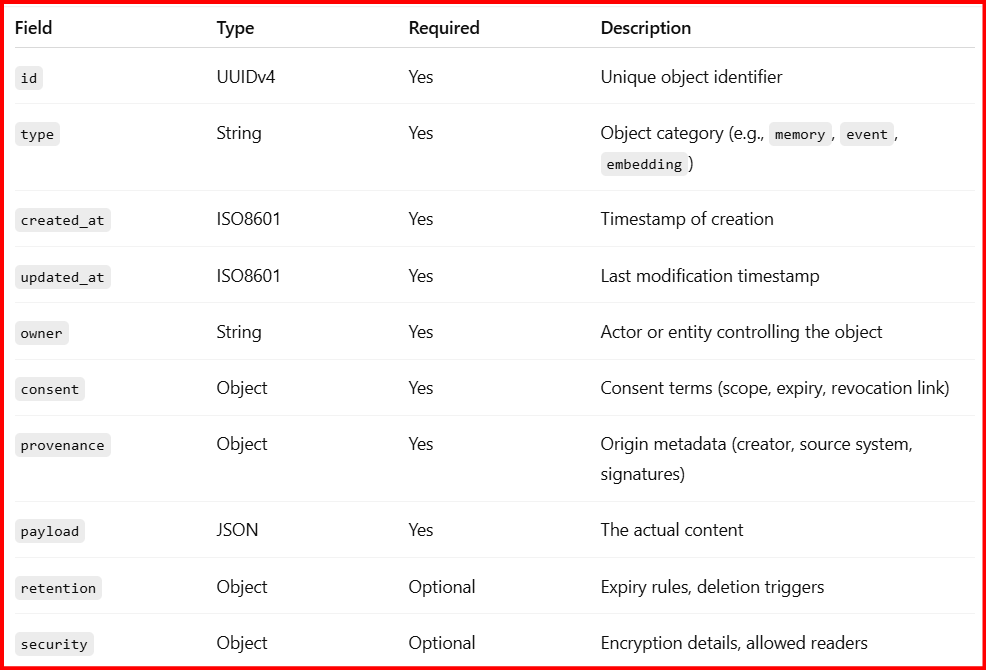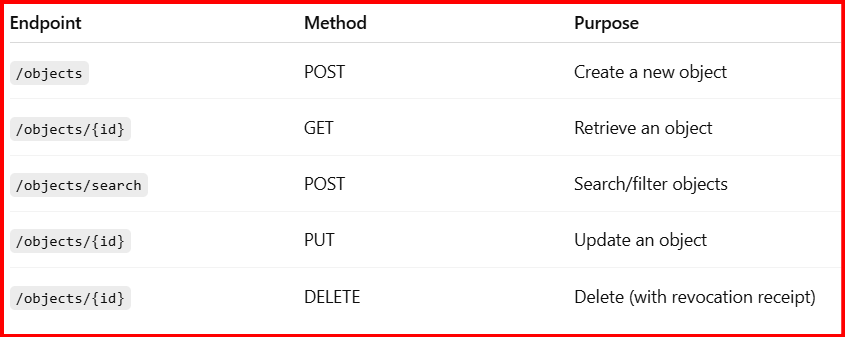1. Scope
OMP defines a universal, vendor-neutral data exchange contract for agent ecosystems.
It applies to all agent-related data objects — structured the same way, encrypted by default, and governed by public versioned specs.
2. Core principles
-
One object model — all data types share a base structure.
-
Privacy-by-default — transport + storage encryption, field-level options.
-
Provenance & audit — signatures, integrity hashes, access logs.
-
Verifiable deletion — revocation receipts and tombstones propagate.
-
Stable kernel — minimal changes, extensions via versioned add-ons.
3. Data Object Schema (Base)
Every OMP object must include:

4. Wire Contract
All compliant implementations must expose these HTTPS endpoints:Every OMP object must include:

5. Security Requirements
-
Transport: TLS 1.3+ (mTLS optional, recommended for B2B).
-
Authentication: OAuth2, mTLS, or compatible open standard.
-
Integrity: SHA-256 or better hashing of payloads.
-
Encryption: AES-256-GCM at rest; per-field optional encryption for sensitive content.
-
Revocation: Deletion must produce a verifiable tombstone record.
6. Conformance Rules
To claim OMP compliance:
-
Pass the reference test suite.
-
Implement all required schema fields and endpoints.
-
Honor consent and retention policies.
-
Maintain public conformance metadata.
7. Versioning
-
Core: Semantic versioning (e.g.,
1.0.1). -
Extensions: Namespaced (e.g.,
ext.location,ext.vector). -
Deprecations: Announced ≥6 months before removal.
8. Governance
-
On it’s way to being stewarded in Switzerland under a neutral foundation.
-
Public proposals, community review, and reference tests before release.